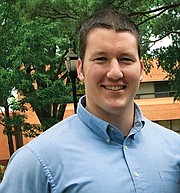The Law is a mighty machine. Woe to the unfortunate man who, wholly or in part innocent, becomes entangled in its mighty wheels, unless his innocence is patent or his rescue planned and executed by able counsel. The machine will grind on relentlessly and ruthlessly, and blindfolded justice does not see that the grist is sometimes stained with blood."
Mr. Edward Johnes penned these words in an essay from 1893, appalled at the grinding machine that "the law" had become. The accused, far from having the inherent upper hand that the judicial system supposedly grants them, found themselves facing a machine ever increasing in power, scope and ruthless authority.
Oh, if Mr. Johnes could see the machine nowadays. Rather than simply facing an overly idealistic prosecutor or a sternly tempered judge, the accused face a multiplicity of interests and forces all allied in opposition to the defendant.
Today, the bloody machine is comprised of over-zealous, rarely curtailed prosecutors, judges who cannot be bothered by civil liberties, every branch of law enforcement imaginable, the bloated prison system, private criminal-forensics laboratories, lobbyists for the drug war, and the private prison corporations, cities and counties that profit off the slave labor of inmates. The list goes on and on.
The bloody machine is horrifically effective, as the U.S., with only 5 percent of the world's population, houses 25 percent of the world's prison population. Against all these foes, the defendant has one friend: his attorney. If our hypothetical defendant is like more than 80 percent of those indicted in America today, his attorney is a public defender, the counsel for the indigent.
Even with his public defender by his side, the indigent man has a problem: Although the U.S. Supreme Court declared in Gideon v. Wainwright that "any person haled into court, who is too poor to hire a lawyer, cannot be assured a fair trial unless counsel is provided for him," just having an attorney isn't enough. The attorney must be effective, ready to give the defendant his or her very best as ethics require.
The reality is that this country—and especially Mississippi—does her best to ensure that the right to counsel barely receives lip service. Society does its best to ensure that the men and women who take up the mantle of public defender are utterly overworked, under-paid and under-equipped for the level of care they are required by law and ethics to provide. They cannot do their best because there is literally not enough time, manpower or supplies to mount a full and vigorous defense for their clients against the ever-growing machine.
In Mississippi, all 82 counties are given the individual responsibility of providing counsel for indigent defendants. This has resulted in a massive patchwork of differing solutions to defense, resulting in indigent defendants receiving the short end of the stick everywhere. Even in counties like Hinds, which boasts a dedicated full-time public defender's office, the county fails. The Hinds County office is filled with a handful of proud and dedicated public defenders to represent hundreds of clients per each attorney. They must share very limited investigative and support-staff resources, and a pay scale that is utterly dwarfed by their prosecutorial counterparts.
The fact that the Hinds County office performs as well as it does is a testament to the public defenders fighting as hard as they can in the courtrooms, not to any support from the county or state.
It's worse outside Hinds County. Judges will simply go through a panel of private attorneys, appointing cases to those who don't rock the boat too much, and taking cases away from those who run up the county budget by daring to fight for their clients. Other counties "contract" with private attorneys, but the pay is so bad that the attorney must balance a private practice to make ends meet, a balance in which the indigent defendant gets short shrift. In some counties, the accused may not get a lawyer at all, even though the law requires it.
The need for indigent defense reform is dire in this country. I do not have room here to even begin to touch on the problems impoverished defendants face in getting a bond set and sentencing should they be found guilty, etc. The bloody ever-growing machine will continue to grow unless the Legislature, and society as a whole, stands with and supports the lone indigent man and his public defender.
Criminal defense attorney and armchair philosopher, Andrew J. Williams, Esq., lives and practices in his adopted home of Mississippi.



Comments
Use the comment form below to begin a discussion about this content.
comments powered by Disqus